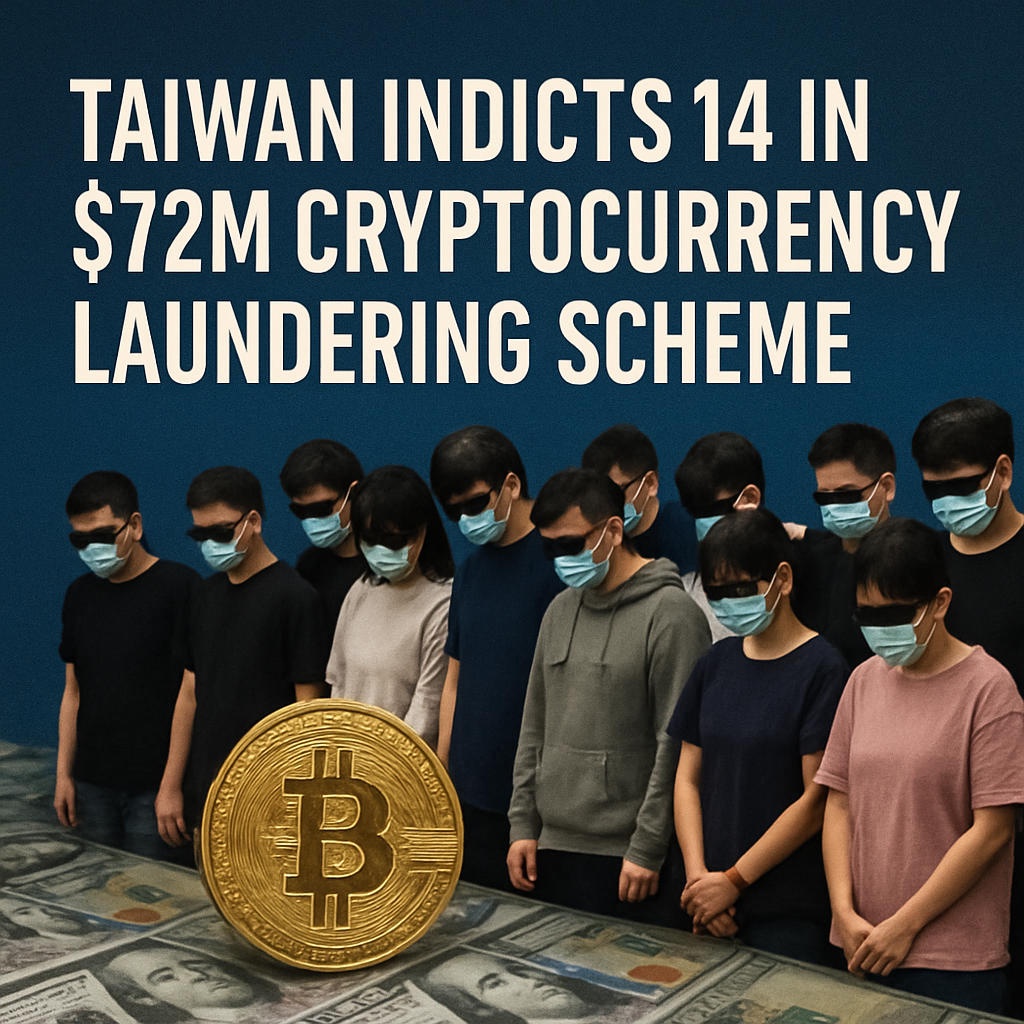On August 22, 2025, the Shilin District Prosecutor’s Office in Taiwan formally indicted 14 individuals on charges of organized crime, fraud, and money laundering in what authorities describe as the largest cryptocurrency laundering case in the nation’s history. The defendants allegedly orchestrated a complex fraud network under the brands “CoinW” and “CoinThink Technology Co., Ltd.,” luring victims with franchise fee investments and cash deposit machines.
Prosecutors allege that between 2024 and mid-2025, the group defrauded 1,539 victims of a combined NT$1.275 billion (approximately $39.8 million USD) through upfront franchise fees. Subsequently, the perpetrators converted illicit proceeds into USDT, undisclosed quantities of Bitcoin and TRX, and transferred funds to overseas accounts via BiXiang Technology, a local cryptocurrency exchange. Bank records obtained during the investigation reveal additional cash withdrawals and luxury asset purchases financed by the scheme.
Asset Seizures and Forfeiture Requests
The indictment seeks the confiscation of virtual assets, including USDT holdings and cryptocurrency wallets containing frozen balances, as well as $3.13 million in bank deposits and two high-value vehicles. The prosecution’s money laundering flow chart, released alongside court documents, illustrates layering techniques used to obscure transaction trails on blockchain explorers. The suspects face potential sentences ranging up to 25 years for lead ringleader Shi Qiren, who is alleged to have spearheaded the operation and refused to cooperate with authorities.
Investigation and Law Enforcement Coordination
The complex investigation commenced with arrests in April and involved collaboration between Taiwan’s Financial Supervisory Commission, local law enforcement, and blockchain forensics firms. Prosecutors utilized network analysis tools to trace token movements and identify intermediary wallet addresses. Future court proceedings will determine the scope of asset recovery and the application of AML regulations within the country’s evolving digital finance framework.
This case underscores ongoing challenges for regulators and law enforcement agencies worldwide in combating crypto-enabled financial crime. Taiwan’s proactive legal response signals increased scrutiny of firms operating unlicensed digital asset services and emphasizes the need for robust consumer protection measures in the cryptocurrency sector.

Comments (0)